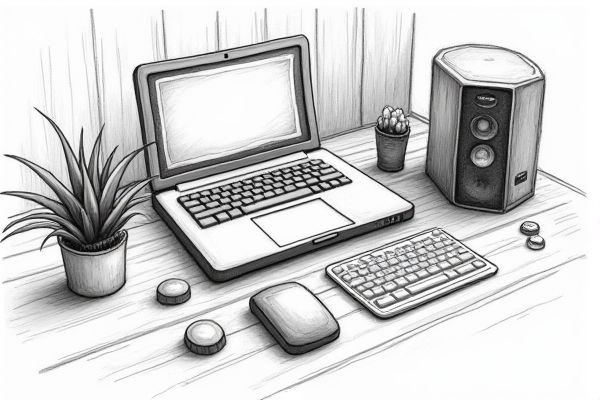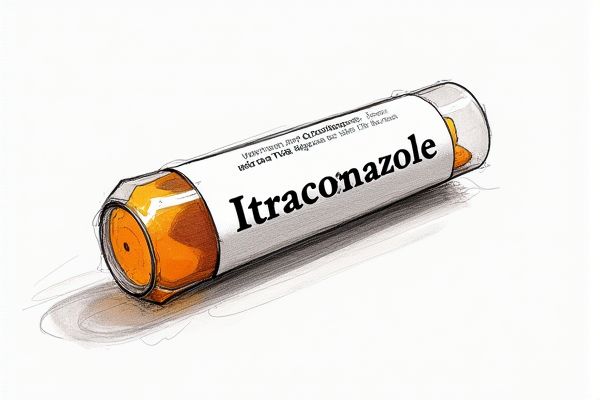As technology continues to advance at a rapid pace, the market is inundated with an array of electronic brands boasting innovative and cutting-edge products. Navigating through this sea of options can be overwhelming for consumers who are on the hunt for high-quality and dependable electronic devices. From smartphones and laptops to smart home devices and audio gear, certain brands have distinguished themselves by consistently delivering performance, style, and reliability. If you're eager to explore which brands stand out in the realm of electronics, take a look at our curated list below.

Illustration of electronic items
Best brands of electronic items in 2025
Samsung
Samsung Electronics has solidified its position as a leading producer of electronic items, maintaining its reign as the global TV market leader for 18 consecutive years, with a 30.1% market share in 2023 and a dominant 60.5% share in TVs priced over $2,500. The company has also been recognized as a "Global Top 5" brand by Interbrand for the fourth year in a row, with a brand value of $91.4 billion and a significant presence in the smartphone market, where it shipped 226.6 million units in 2023, holding 19.4% of the global market.
Apple
Apple is one of the leading producers of electronic items, renowned for its innovative and user-friendly products. As of Q1 2024, Apple's iPhone market share has reached 17%, the highest in recent years, and the company boasts around 2.2 billion active devices worldwide. In 2023, Apple generated $383.29 billion in revenue, with iPhone sales accounting for 50.46% of the company's revenue in Q2 2024. The services division, including Apple Music with 93 million subscribers, contributed significantly to Apple's revenue, generating $23.87 billion in Q2 2024. Apple's strong brand positioning and expanding ecosystem have fueled its growth, projecting a 6% CAGR over 2023-2026. For more detailed statistics on Apple's performance, please visit their site.
Sony
Sony, a leading manufacturer of consumer electronic products, was established in 1946 and is headquartered in Tokyo, Japan. The company operates in various segments, including games and network services, mobile communications, music, pictures, and home entertainment, among others. In 2023, Sony's revenue was $87.16 billion, with a 7.09% growth from the previous year, and the company is projected to reach $90.18 billion in revenue by 2024. Sony holds significant market shares, such as 66.6% in the PlayStation market and 55% in the image sensor market. Notably, the Games and Network Services segment accounted for 31.3% of its sales in 2023.
LG
LG Electronics is a leading producer of electronic items, dominating the OLED TV market with a 52% market share in the first quarter of 2024 and holding over 50% of the super large OLED TV market for sizes 70 inches and above. In the US home appliance market, LG secured a 19% market share based on sales in 2023. The company's Home Appliance & Air Solution segment generated around $23 billion in revenue in 2023, making it LG's largest business segment. LG also maintains a significant presence in the global TV market, shipping 5,411,000 units in the first quarter of 2024. Despite stiff competition, LG continues to innovate with products like its 97-inch OLED TV, the largest in the world.
Huawei
Huawei is a leading global technology company, renowned for its innovative electronic products. As of 2023, Huawei holds a 4% global smartphone market share and a significant 23.22% market share in China, although this is a decline from the previous year. The company is a pioneer in 5G technology, with a 24.8% share of 5G subscribers and having manufactured 60% of China's 5G base stations. Huawei also dominates the global 400G WDM market with a 35% market share as of 2022 and has filed the most 5G patents globally. Additionally, Huawei's revenue from smartphone sales reached $98.5 billion in 2023, marking a 9% increase from the previous year. For more detailed insights, visit the Huawei statistics page.
Panasonic
Panasonic is a renowned global leader in the consumer electronics and technology sector, boasting a 12% market share in the global home appliances industry and a significant 21% share in the EV battery market as of 2023. The company reported an impressive revenue of $64.9 billion in 2023, driven primarily by its energy solutions and automotive divisions. Panasonic's sales are highest in Japan, followed by North and South America, with the company predicting continued growth, especially in the EV battery segment, with an expected revenue of $7.1 billion in 2024. The company collaborates with major automakers like Tesla and has invested heavily in renewable energy solutions. Panasonic aims to become carbon neutral by 2050 and reduce CO2 emissions by 30% by 2030. For detailed insights, visit the Panasonic statistics page.
Dell
Dell Technologies stands as a leading producer of electronic items, boasting a significant market share in the computer hardware industry. As of Q3 2024, Dell holds a 16.20% market share in the computer hardware sector and has maintained 18 consecutive quarters of year-over-year PC market share gains. The company is also the world's No. 1 in worldwide workstation and monitor shipments. Dell's revenue for 2023 was $102.3 billion, with an expected $88.43 billion in revenue for 2024, segmented into Infrastructure Solutions Group and Client Solutions Group. Dell's global PC shipment share was 17.3% and 17.4% in Q1 and Q2 of 2023, respectively. For more comprehensive insight into their offerings, visit their official website.
HP
HP is one of the leading producers of electronic items, having held the position of the world's leading PC manufacturer from 2007 to 2013. As of 2023, HP maintains a significant market share of 21.9% in the global PC market, closely following Lenovo's 24.8% share. In 2021, HP's revenue reached $63.5 billion, with $43.4 billion coming from its Personal Systems segment and $20.1 billion from Printing. Additionally, HP shipped 22.7% of all PC units sold in the United States in the first quarter of 2022. The company's consistent growth and strong market presence solidify its position as a top electronic goods producer. For more detailed insights and information about their products, visit their official website.
Lenovo
Lenovo stands as a leading producer of electronic items, particularly in the PC market, where it has consistently held a significant market share. As of the third quarter of 2024, Lenovo's global PC market share increased to 24.8%, with 16.5 million units shipped, a year-on-year increase of 3%. The company has maintained its position as the world's largest PC vendor since 2013, with a strong presence in over 70 countries and products reaching more than 160 countries. Lenovo's revenue has also seen substantial growth, with a 20% year-on-year increase to $15.4 billion in the quarter ending June 2024, driven largely by its infrastructure solutions group. The company's strategic acquisitions, such as IBM's ThinkPad division in 2005, have further solidified its market position. For more insights into Lenovo's market share advancements and profit strategies in the AI domain, visit Lenovo Gains Market Share in Computing Race.
Microsoft
Microsoft is a leading producer of electronic items, commanding a significant market share in various sectors. As of Q3 2024, Microsoft holds a 44.34% market share in the Software & Programming Industry and 14.66% in the Technology Sector. Its Windows operating system dominates the global desktop PC market with a 74.14% market share as of January 2023. Microsoft's revenue has consistently increased, reaching $184.9 billion in 2022, and its market cap stands at $2.254 trillion as of April 2023. The company's strong brand value, which increased by 49% to $611 billion in 2022, further solidifies its position in the tech industry.
















Leave a Reply
Your email address will not be published.